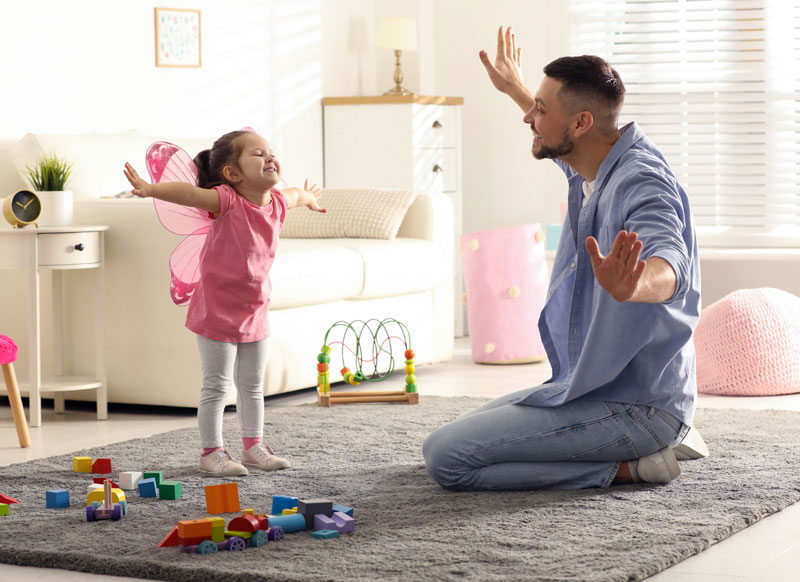By Azlen Theobald, PsyD, Post-Doctoral Fellow in Neuropsychology
1. Engage with your kids
Set limits on work and home time so it doesn’t blend together. Try to have dinner as a family, and ask children about their days. Make sure they know parents are available to talk with and vent their own frustrations. This is a difficult time for kids as well as adults.
2. Exercise together
Don’t give in to a sedentary lifestyle. Kids (and adults!) should move their bodies for at least 30 minutes every day. That can mean bike rides, jumping jacks, and online workout videos. To make it fun, you can even make exercise a game or family competition…like racing around the block.
3. Practice skills that foster your child’s creativity and learning
Just because kids aren’t out and about doesn’t mean they can’t continue to develop cognitive skills and creativity.
Reading to your child encourages language, literacy and communication across all ages. It offers ways for your child to join in, such as turning the page, helping to tell the story and predicting what will happen next.
For infants and toddlers, games involving back-and-forth play such as “peek-a-boo” can boost cognitive growth.
4. Find alternative ways to socialize safely
Isolation is increasing stranger anxiety and separation anxiety, especially in young children. Interaction outside of family is still important for their social and emotional growth. Try to encourage your child to socialize through video chats or online games with friends. Online chats with grandparents are another great way to keep both children and older adults socially active.
5. Monitor Your Child’s Development
The Centers for Disease Control and Prevention’s milestone checklist can help you monitor growth by age. If you notice your child is falling behind or losing skills they once had, always call your pediatrician.
6. Don’t Skip Doctor Appointments
Fear of COVID-19 transmission has been linked to decreases in routine medical care for both children and adults. Well-child visits allow pediatricians to review and evaluate your child’s development and gives parents the chance to raise any questions or concerns and get ahead of problems.



